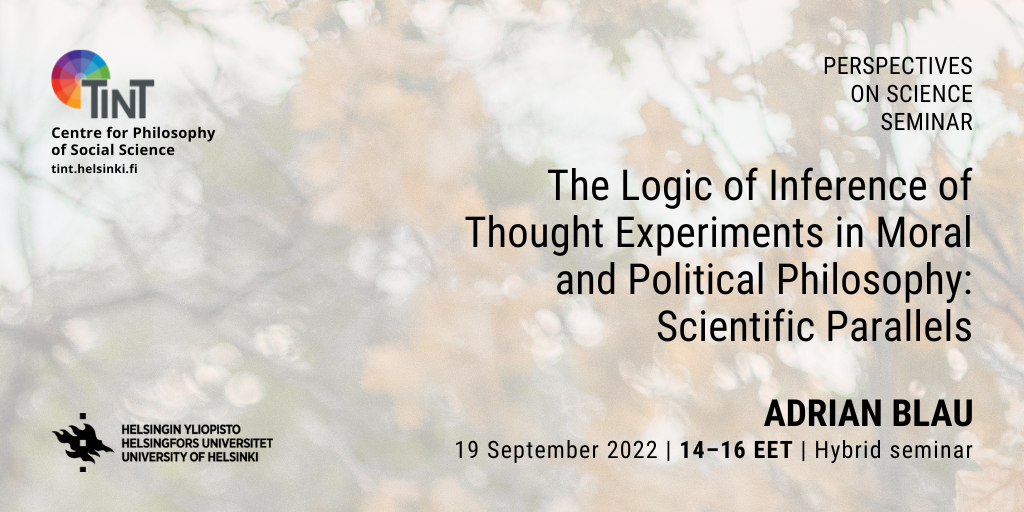
In the first Perspectives on Science seminar of autumn 2022, Adrian Blau (King’s College London) will give a talk on “The Logic of Inference of Thought Experiments in Moral and Political Philosophy: Scientific Parallels”.
The seminar takes place in hybrid format, both in person at Metsätalo (University of Helsinki) and online via Zoom from 14:15 to 15:45 on the 19th of September. To join the seminar, please contact jessica.north@helsinki.fi for the location details or Zoom invitation.
Perspectives on Science is a weekly research seminar which brings together experts from science studies and philosophy of science. It is organized by TINT – Centre for Philosophy of Social Science at the University of Helsinki. More information about the seminar here.
Abstract:
Thought experiments are a key tool in political theory and philosophy, but they remain controversial. I first justify thought experiments in new ways, for instance by showing their role in conceptual analysis, and by denying the false dichotomy between ‘real’ examples and hypothetical thought experiments. I then highlight important and largely overlooked parallels between thought experiments in political philosophy and comparison in the natural and social sciences. This gives us powerful tools for testing and improving thought experiments, by using ideas like internal and external validity, controlled comparison, omitted variable bias, interaction effects, spurious correlations, testable implications, and parsimony. Focusing on variables is the key. This helps me address longstanding debates about ‘weird’ and ‘wacky’ thought experiments. Without exaggerating the scientific parallels – there are also important differences – this paper shows significant links between political philosophy and political science, and offers new insights into whether and how to use thought experiments, and about their limitations.
Author bio:
Adrian Blau was an undergraduate at Cambridge and did his Masters and PhD in Oxford. Since 2011 he has worked in the Political Economy department at King’s College London, where he is now a professor. He edited the first ever textbook in political theory methods, Methods in Analytical Political Theory (Cambridge University Press, 2017), and has published more than 10 articles and book chapters on the methodology of history of political thought, including articles in the American Journal of Political Science (“How [not] to use the history of political thought for contemporary purposes”, 2021) and the Journal of Politics (“Anti-Strauss”, 2012). He also works on democratic theory and practice, on post-truth politics, on rationality, on Habermas, and on the political theory of Thomas Hobbes.

